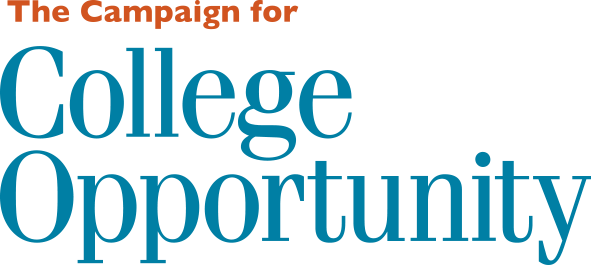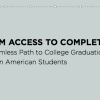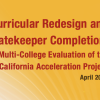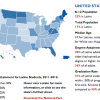
Born in Puebla, Mexico, Karmina was two years old when she crossed the United States-Mexico border at Tijuana with her parents. She has only known life here in the U.S. Her family settled in Los Angeles. Her father is a chef who worked his way up from a busboy.
Karmina, 22, graduated from John Marshall High School in 2007. Today she is a second year student at Los Angeles City College (LACC). She is also undocumented, “I often get discouraged because I don’t have papers,” says Karmina. Without documents, she cannot work legally in the United States. She observes that many employers seek employees with bachelor’s degrees, and she sees the competitive advantage of having a college degree.
It is her beloved younger sister, Susana—14 years old and U.S. born—that keeps Karmina going. Since Karmina was 15 years old, she has volunteered at Susana’s after-school program, “LA’s Best,” and recently enrolled her sister in a performing arts program at Gabriella Charter School. “She’s a big influence on me. I want her to be somebody,” Karmina said.
Karmina recalls a conversation she had with Susana: “One day I told her, ‘You’re going to go to college.’ And Susana asked, ‘Why, when you’re just sitting here, you’re not doing anything?’ ” That’s when it hit Karmina. She was not doing anything, and the thought pushed her to register at LACC.
At LACC, Karmina faces many of the same challenges other community college students face—lack of counseling and limited knowledge of student support services. However, Karmina cites financial challenges stemming from her undocumented status and preventing her from accessing financial aid and scholarships as only complicating her ability to complete.
Karmina feels there are limited resources available to undocumented students on campus. “I know there are students other than myself who are in the same situation, but I don’t know who I would talk to about my status,” says Karmina. She would like to see an office where undocumented students can go to get answers to their legal questions: information on grants, financial aid, and informal job opportunities; and where they can keep abreast of the status of the DREAM Act (Development, Relief and Education for Alien Minors).
Not being able to access financial aid and scholarship dollars as a result of her status, Karmina argues that books, supply fees, and transportation costs are much more of a barrier to completion.
“If I had papers, I could get financial aid and not have to worry about money,”
she explained. She estimates that she pays between $600-800 per semester for tuition, school fees, books, school supplies and transportation. For example, Karmina shares that a program that allowed students registered for 12 or more units to have an unlimited Metropolitan Transit Authority (MTA) System pass for $20 a semester is now $144 and too expensive. This is particularly problematic considering more than half of the students at LACC rely upon the MTA to get to school, herself included. With regards to recouping textbook costs, Karmina shares: “They say they give you money back, but they give you $5 back on a $100 book.” Karmina often resorts to borrowing friends’ old textbooks to avoid the cost, if she can.
“For me, I would appreciate it if the college gave us immigrant students some type of scholarship or work opportunity through the school. Just give us a chance,”
Karmina says. In the restaurant industry, Karmina’s father worked his way up from dishwasher to chef. The same upward mobility in labor should be extended to education.
California Governor Jerry Brown recently signed legislation, the first part of the California DREAM Act, which allows undocumented college students limited access to financial assistance in the form of private scholarships. The second part of the DREAM Act was signed and will give undocumented students access to state financial aid in the fall of 2013.
In the two years Karmina has attended LACC, she has met with a counselor only once, and she describes that meeting unfavorably. The session lasted ten minutes, and she felt the counselor was generally uninterested. As if by rote, he showed Karmina the course requirements for art majors and then she felt, “pushed out of the office.” Ideally, Karmina would like an assigned counselor and full 30-minute sessions. Because she seeks guidance in selecting specific courses and professors, she does not know the unit requirements for graduating with an associate degree or for transfer to a four-year university. This information was not discussed during her one session. “That’s something I would ask my counselor,” she said.To date Karmina has never used any academic preparatory resources like writing or math labs. “I don’t like bothering people, so I won’t ask them for help,” she says. For students like her who find it difficult to ask for help, a more personalized counseling experience would likely encourage use of those resources, and in the case of undocumented students, help combat feelings of hopelessness and isolation.
Karmina is still undecided on her major because she feels
“I haven’t found my strength yet but I am definitely working on it.”
Once the session begins, she will schedule an appointment with a counselor to get help determining the classes she will need.
Student Success Indicator
A college completely focused on student success and committed to data-driven decisions. Student demographics are changing and “business as usual” no longer fits the needs of many students like Karmina with extraordinary circumstances. Research shows that while 34% of community college “degree-seekers” are Latino, and 40% are white, only 23% of “completers” are Latino and 48% are white.* Strategies to better serve vulnerable students, such as first-generation and low-income students, can be better formed by data disaggregated by race/ethnicity, gender, age, and other important student demographics.
SOURCE: *Moore, C., Shulock, N. (2010). Divided We Fail: Improving Completion and Closing Racial Gaps in California’s Community Colleges. Institute for Higher Education Leadership & Policy, CSU Sacramento






